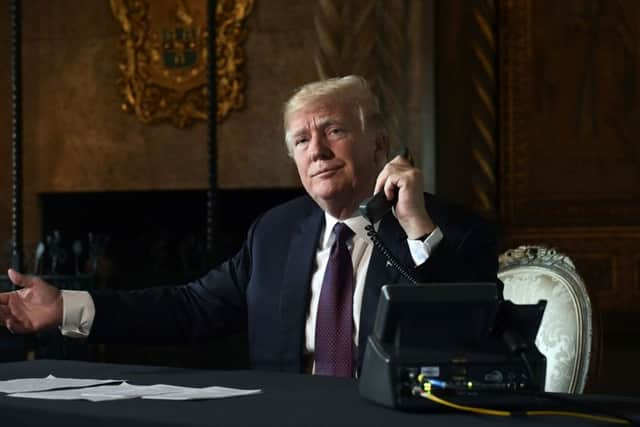Andrew Vine: Fightback over fake news and Facebook must start with young


It’s stuff about celebrities lurid claims that wouldn’t interest me even if true, doctored rubbish about politics – and preposterous nonsense about shadowy international conspiracies.
And this is just the stuff that gets past the spam filters. If I look at the junk folders, there is even more of it.
Advertisement
Hide AdAdvertisement
Hide AdI don’t believe a word of it, but other people do. I was talking to a group of young people about the media a few weeks ago, and came away concerned, because without realising it, they were struggling to distinguish between fake news and the real thing.


Besides the emails they received, there was all sorts of disinformation coming at them via social media from their friends and contacts. They weren’t the originators of it, just passing it along because it was eye-catching and a talking point.
All the people in the group were intelligent, and it would be unfair to describe them as gullible. But they were disposed to believe most of what presented itself, rather than being sceptical and questioning the truth of it.
They had in common an implicit trust in social media and its content. Because it is central to their lives, they are accepting of what it tells them. This is a gap in their defences, allowing in potentially harmful material.
Advertisement
Hide AdAdvertisement
Hide AdTheir mentality was that if it’s on Facebook or Twitter, it’s probably true. Except that this can’t be taken for granted, and the message that somebody with malicious intent far back down the line has originated deliberate falsehoods and fed them into the system, where they replicate like a virus, is not an easy one to get across.


This is an issue that the Digital, Culture, Media and Sport Select Committee will try to get to grips with today when it sits down to discuss fake news and disinformation.
How big a problem it is growing into should not be underestimated. It threatens to undermine trust in state institutions, in politics and in the honest, properly-run and conscientious media that plays such an important part in how democracy operates by holding those in power to account.
Its insidious influence worldwide has been aggravated by Donald Trump, a man to whom the truth often seems not only to be a stranger, but an enemy. His bellowing of “fake news” whenever awkward questions are asked of him, whether about his policies or the possible malign influence of Russia on his election as US President, is hugely damaging.
Advertisement
Hide AdAdvertisement
Hide AdMillions of Americans trust their President, so when he tells them that mainstream news outlets are liars peddling falsehoods, they believe him. A Stalin or a Mao with all their apparatus of dictatorship could not have spread harmful propaganda more effectively than Mr Trump is doing in the world’s most powerful democracy.
Disinformation shreds social cohesion. It makes populations suspicious and cynical about how they are governed. It has emerged that in the run-up to the Brexit referendum, fake Twitter accounts set up in Russia were producing a blizzard of tweets urging people to vote one way or the other.
It’s impossible to know if they had any effect on the outcome, but the fact that it was happening at all is disturbing because it marked an attempt to sow yet more discord.
Tackling fake news and disinformation is tricky. If trust in institutions has already been undermined, they face an uphill struggle to persuade people of their honesty. They end up on the back foot, suspected of being part of some sinister and manipulative conspiracy.
Advertisement
Hide AdAdvertisement
Hide AdBut it has to be tackled, and today’s select committee will hear of a possible way forward. It comes from Singapore, whose parliament set up a committee to look at deliberate online falsehoods.
A couple of months ago, it published a report setting out a series of steps for getting to grips with fake news. At its heart was a recommendation for a school curriculum that encouraged critical thinking, and taught young people about the motivations of those who spread disinformation.
The committee identified those motives as fomenting tensions between different ethnic groups and undermining trust in democracy.
If fake news is to be combated, the fightback must start with the young. Just as they are taught to be aware of the risk posed by abusers, they need to learn to stop and think about whether everything social media is telling them is true.
Advertisement
Hide AdAdvertisement
Hide AdThe way we live now means that education can’t just be about passing exams. It must teach the young about the consequences of being manipulated, the unhappiness and discord it sows. Fake news isn’t an abstract concept, but a real threat to the contentment of their lives ahead.